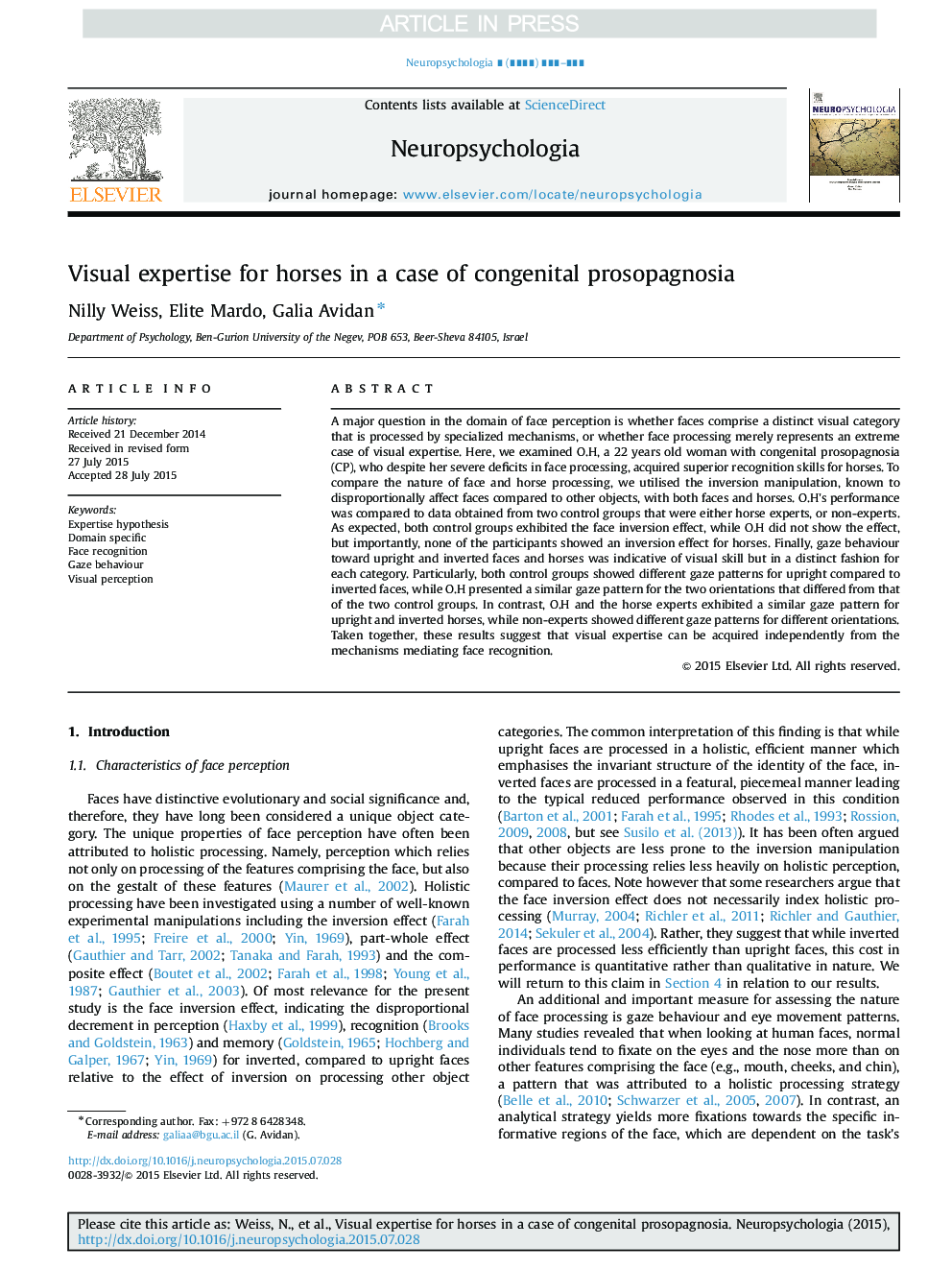| Article ID | Journal | Published Year | Pages | File Type |
|---|---|---|---|---|
| 7319164 | Neuropsychologia | 2016 | 13 Pages |
Abstract
A major question in the domain of face perception is whether faces comprise a distinct visual category that is processed by specialized mechanisms, or whether face processing merely represents an extreme case of visual expertise. Here, we examined O.H, a 22 years old woman with congenital prosopagnosia (CP), who despite her severe deficits in face processing, acquired superior recognition skills for horses. To compare the nature of face and horse processing, we utilised the inversion manipulation, known to disproportionally affect faces compared to other objects, with both faces and horses. O.H's performance was compared to data obtained from two control groups that were either horse experts, or non-experts. As expected, both control groups exhibited the face inversion effect, while O.H did not show the effect, but importantly, none of the participants showed an inversion effect for horses. Finally, gaze behaviour toward upright and inverted faces and horses was indicative of visual skill but in a distinct fashion for each category. Particularly, both control groups showed different gaze patterns for upright compared to inverted faces, while O.H presented a similar gaze pattern for the two orientations that differed from that of the two control groups. In contrast, O.H and the horse experts exhibited a similar gaze pattern for upright and inverted horses, while non-experts showed different gaze patterns for different orientations. Taken together, these results suggest that visual expertise can be acquired independently from the mechanisms mediating face recognition.
Related Topics
Life Sciences
Neuroscience
Behavioral Neuroscience
Authors
Nilly Weiss, Elite Mardo, Galia Avidan,
